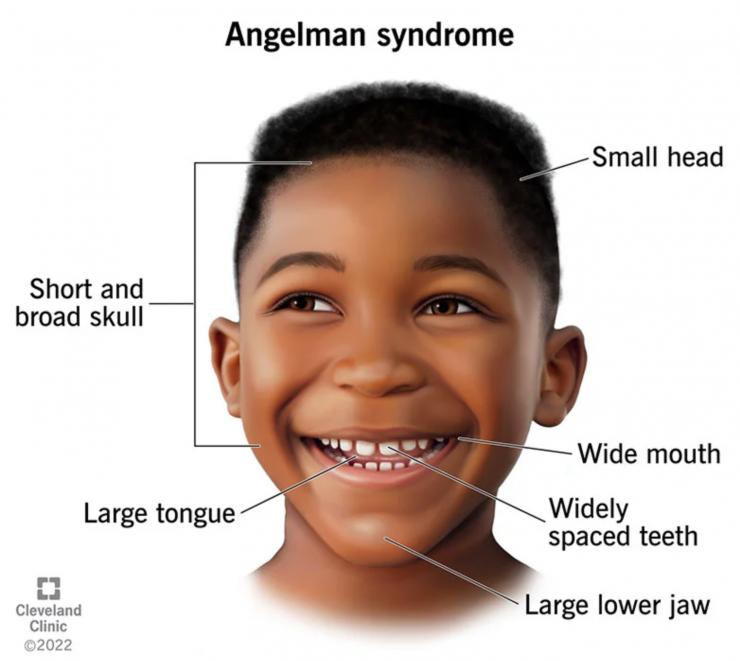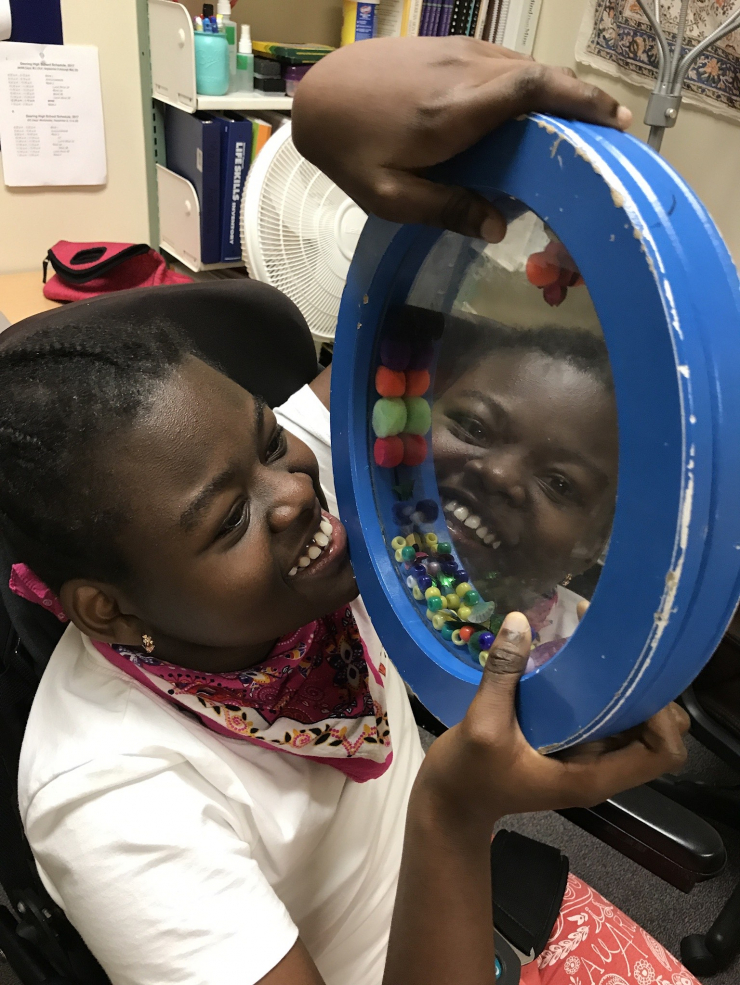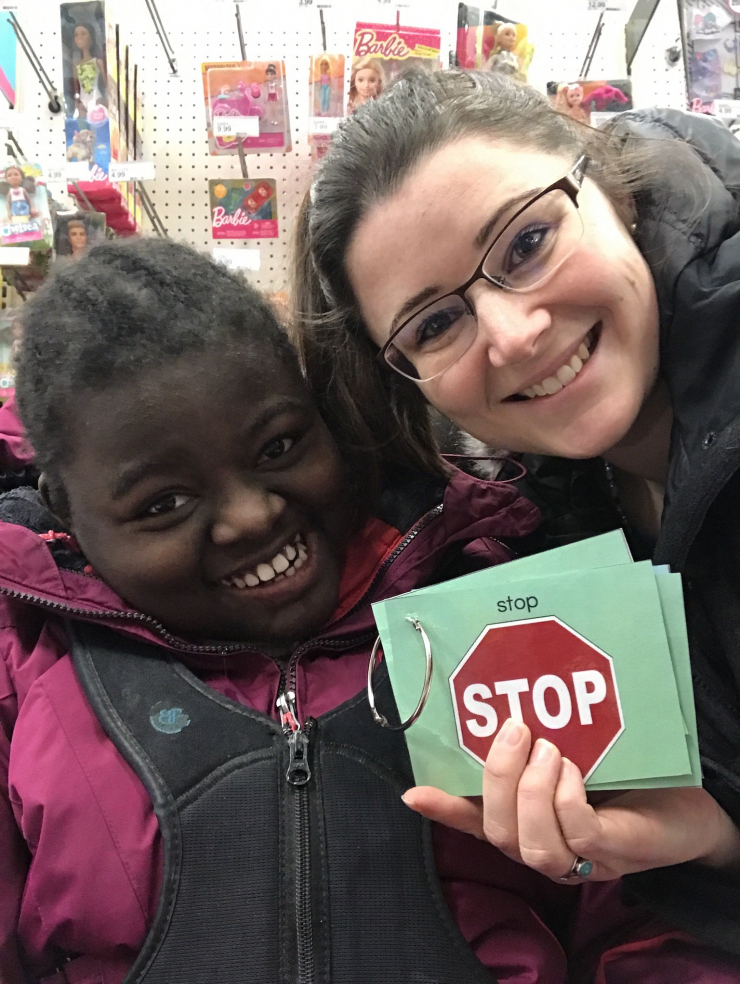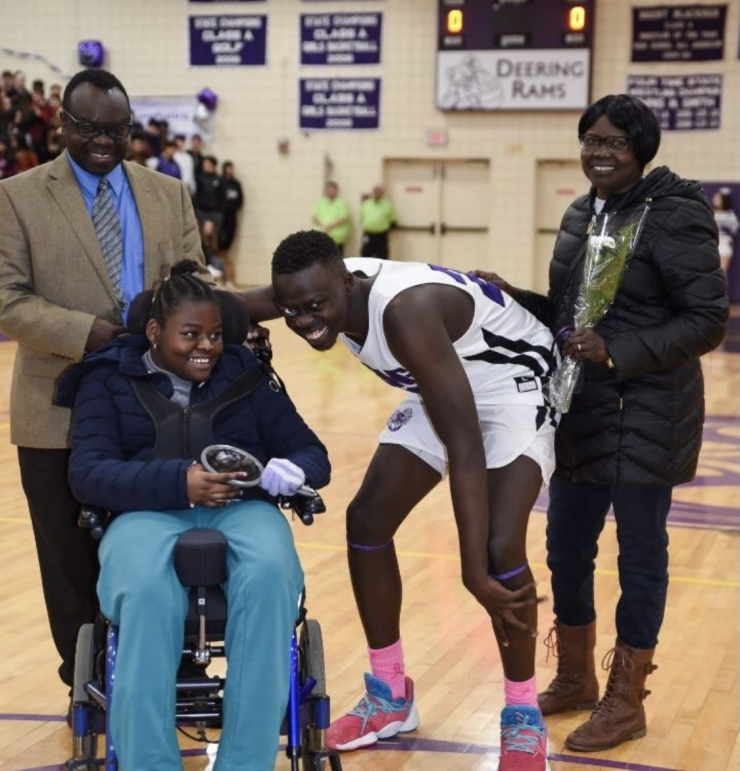
But even she could never have imagined just how challenging it would be, how their family would be tested and pushed to the limit.

When she shared more of her experience with us, the opening paragraph left our jaws on the floor, and we hadn’t even gotten to her daughter, Itta, and the reason they found their way to Chive Charities.

“We came to America on April 16, 1999, on a plane. The first place we were sent was Jackson, Mississippi.
“On April 21, they took us to the hospital to get vaccinated. The nurse asked me if I was pregnant, and I told her I didn’t know. They didn’t give me a blood test and gave me the vaccines anyway. Two weeks later, they did a blood test and found out I was pregnant. I was due in January 2000.

“They said my baby was at risk because I was still in the earlier stages of pregnancy. The doctor told me the MMR vaccine could be very dangerous, and it meant my baby could be blind or non-verbal. I was very sick during my pregnancy, losing weight, and was admitted to the hospital three times for an IV and other medical support. I was feeling so scared, I felt like I was going to die…”
Sadia and John spent the next seven months trying to acclimate to their new life in America as they prepared for the birth of their daughter. After reconnecting with a family friend, they relocated to New Hampshire, a three-day drive from Mississippi. Five days later, Sadia’s water broke unexpectedly in the middle of the night. They rushed to a small nearby hospital.

“Keep in mind, at this time, I was fluent in Arabic and the Sudanese dialect of Arabic, but I didn’t know a lot of English, so hearing all the medical terms was overwhelming,” Sadia shared.
“Being in a new place and not fully understanding is so hard. When we reached the hospital, they said, ‘This is an early delivery, and our facility cannot handle a premature baby. We are going to send you to Portland, Maine.’ We were unfamiliar with the area and thought they were talking about somewhere in New Hampshire. We didn’t realize we were going to a completely different state. They put us in an ambulance at 3am and we reached Portland very early in the morning.

“Itta was officially born on Thanksgiving Day, Thursday, November 25, 1999. At the time, we had no idea what Thanksgiving was!” Sadia laughed.
It was a dramatic entrance for the little girl, born in a new country and unexpected state. And given the fact that she was born several weeks early, she had other more immediate challenges to overcome.

Itta spent the first three weeks of her life in the NICU while the family stayed nearby at the Ronald McDonald House. After that, Itta was released from the hospital, and they were set up in a hotel for two additional weeks as Itta continued undergoing follow-up appointments. Eventually, the family was able to move into an apartment in Portland, Maine, and they’ve stayed in the city ever since.
Life might have continued that way, but Sadia noticed that Itta was not developing like other kids. She wasn’t crying in the morning or making as much sound as other babies. At first, the doctor was dismissive, saying, “Let’s wait until she’s five months old - sometimes some kids are late to develop.”

But at the five-month mark, Itta still wasn’t making noise or rolling over. When they finally ordered a brain MRI, the results were shocking.
“They found that her brain was a smaller size than normal,” explained Sadia. “So they sent us to another doctor and another neurologist for a full evaluation. That was when Itta was diagnosed with Angelman Syndrome.”

Angelman syndrome is a rare genetic disorder that causes delayed development, speech and balance challenges, intellectual disability, and sometimes seizures. People with Angelman syndrome often smile, laugh frequently, and have happy, excitable personalities.

That’s true of Itta, too.
She’s an extremely outgoing, happy, and social young woman. Some of her greatest joys are being in the community and people-watching, dancing to music of all kinds (truly, anything from pop, to church hymns, to country music), reading, and being with family and friends.

As is typical for people with Angelman syndrome, Itta is unable to use verbal speech to communicate her needs. When she was enrolled in public school, some staff members and teachers did not believe in her ability to communicate. Around the middle of her school career, she was written off, and her parents were told she would not progress with her communication.
Because of her limited fine motor skills, it was hard for Itta to access most traditional communication devices, and little effort was made on her behalf.

In high school, though, therapists, teachers, and staff members believed she could do more. Itta was able to progress to making choices for favorite activities by choosing between two pictures. With practice, she was able to do this easily.

Then, she learned how to choose an activity from four pictures...then eight! After building up her skills, Itta trialed a Tobii Dynavox eye gaze device, which allows her to activate buttons with her eyes and participate in conversation.

Having access to so much communication has revealed her sass and spunk. (This includes bemoaning speech therapy when she is tired and saying, "This is not fun!" or commenting, "I look great!" on her new outfit). Itta's overall quality of life has drastically improved as she is able to begin making choices for herself. It’s truly been remarkable.

It’s no doubt her loving and supportive family has been critical. Sadia and John do everything in their power to take care of their daughter, who also has a younger brother named Loki.

As Itta's Speech-Language Pathologist, Alisha, shared with us, “They are extremely humble people and would not want accolades for what they have done, but they continue to present time and time again as a selfless and admirable family.”

But even these superstar parents needed some help of their own.
Ten years ago, they purchased a wheelchair-accessible van for Itta (a 2007 Chevy Uplander), but it’s slowly failing, and the repair costs are adding up. Itta relies on this van for easy transport to doctor’s appointments and to participate in the community around her (one of her greatest joys).

Thanks to Alisha, they learned of Chive Charities and the many ADA vehicle grants we’ve been able to provide over the last decade. They were hoping they might become one of them.
Because of your continued support and unwavering dedication, we made that dream a reality and proudly funded a 2016 Toyota Sienna from our friends and partners at AMS Vans. The total impact was $49,992.

One of the most bittersweet parts of our work is meeting so many incredible families and wanting to support all of them. Today, we’re so grateful that we could fill the gap for Sadia, John, Itta, and Loki.
There’s a lot in their rearview mirror – their native country and many long-time friends and family – but ahead of them is so much more. Hope, a brighter future, and the support of a community determined to lift them up.

We could always use more superheroes in our corner to support the superstars like them. Join our community of donors as a one-time or monthly contributor and be part of making the world 10% happier. We can’t do it without you! DONATE HERE.